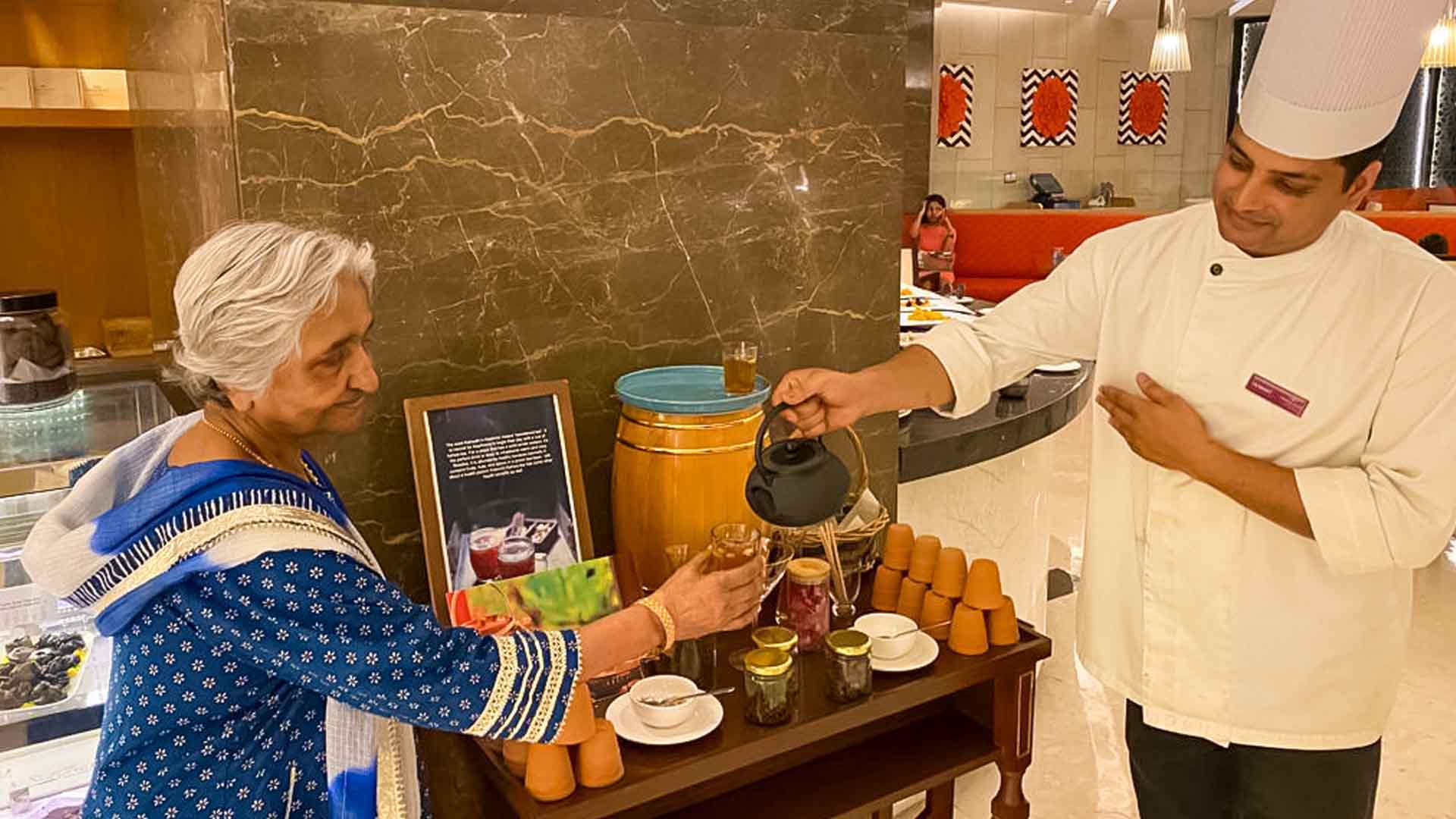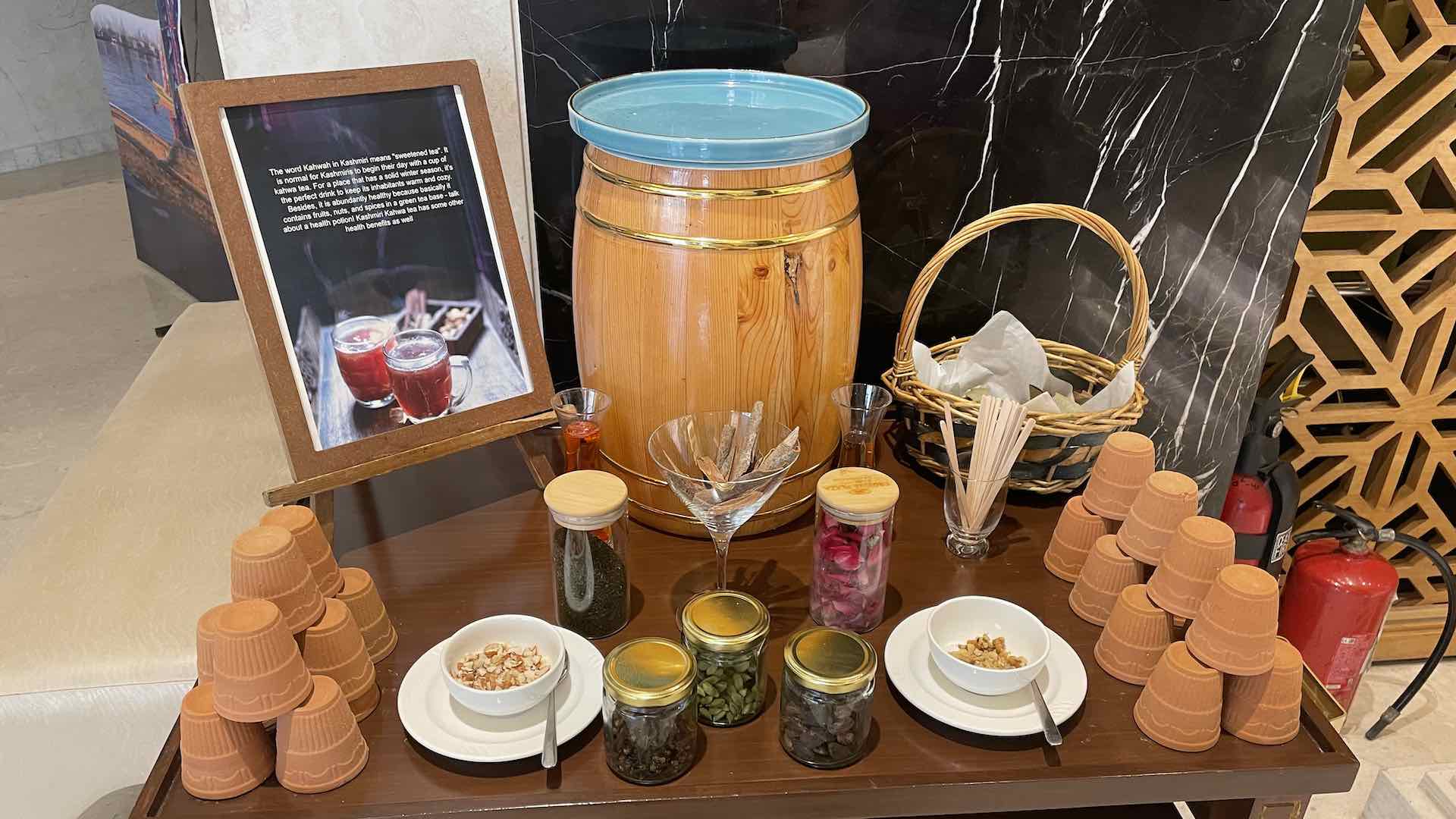The golden hues of Jaipur’s evening sun bathed the façade of the Crowne Plaza Hotel, where I found myself unwinding after a long day of sightseeing. Tired but excited, I decided to treat myself to a delightful dinner at the Soccorro restaurant within the hotel. Little did I know, a delightful surprise awaited me there.

As I stepped into the restaurant, a waft of aromatic allure greeted me. It felt like an invisible embrace of warm spices, pulling me closer to its source. Chef Hemant, with a proud smile and a twinkle in his eyes, approached me, holding a delicately crafted cup. “In honor of the Kashmiri Wazwan we’re celebrating tonight,” he began, “I thought you might enjoy a traditional welcome drink – Kahwa tea.”
The warmth of the tea seeped through the cup, and as I took the first sip, I was transported from the heart of Rajasthan to the chilly terrains of Kashmir. Every flavor note – from the subtle green tea to the rich undertones of saffron and spices – told a tale of ancient routes, merchant stops, and a drink that was lovingly adopted and adapted by the Kashmiri people.
For someone unfamiliar with Kahwa, this drink symbolizes more than just tea; it’s an intricately woven tapestry of history and tradition. Originating from Central Asia, Kahwa found its footing in the picturesque valleys of Kashmir, serving as both a drink of hospitality and a means of warmth in the cold. Preparing Kahwa is an art in itself. The fine green tea from Kashmir’s high terrains forms its base, enriched by spices like cinnamon and cardamom, and garnished with almond slivers.

Chef Hemant’s rendition, sweetened to perfection, was reminiscent of the traditional method using a ‘Samovar‘, a brass kettle, symbolizing the age-old Kashmiri tradition. As the evening progressed, Chef Hemant regaled me with tales of Kahwa’s myriad health benefits, from aiding digestion to imparting a radiant glow to the skin. The more I learned, the more I realized that Kahwa is not just a tea, but an emblem of the Kashmiri way of life.
The crowning jewel of the evening was, of course, the Kashmiri Wazwan. An elaborate feast with multiple courses, each dish was a testament to Kashmir’s rich culinary heritage. But it was the Kahwa that lingered on my palate and in my heart, long after the meal was over.
As I reminisced about the enchanting evening at the Crowne Plaza in Jaipur, the hotel’s plush comforts and the gastronomic delights of the meal undeniably added to its charm. However, the most poignant memory was my subconscious voyage to Kashmir, all through a single cup of Kahwa. Chef Hemant’s heartfelt touch in crafting this traditional brew made it the standout moment of the evening.
Author
Pratibha Rajguru, a notable writer and philanthropist, is esteemed for her considerable literary undertakings and devotion to family. Her scholarly proficiency, rooted in Hindi Literature, Philosophy, Ayurved, Naturopathy and Hindu scriptures, illuminates her diverse freelance portfolio. Furthering her impact, in the early Seventies, her editorial role at Dharmyug, a respected Hindi weekly by the Times of India Group, underscores her multifaceted literary influence. Currently, she’s enhancing her literary footprint by compiling a collection of poems, writing a book titled Sankalp Shakti about her battle with gastro intestinal cancer and spearheading Pratibha Samvad, an online portal to showcase her contributions to the literary field.
